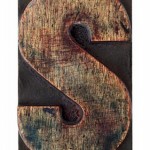No Colonialism Here: An all-too-easy journalists guide to Canada’s aboriginals

Some time ago, I read a newspaper column written by a then-expatriate Kenyan living in Johannesburg. At the time, Binyavanga Wainaina‘s piece made me put down my coffee, set down the Mail & Guardian newspaper, and scribble his name into my notebook and onto the back of my brain.
His story was funny, true, insulting, provocative, disturbing, unsettling, true, accurate, hilarious… and true. Entitled “How to Write About Africa,” Wainaina’s article created a handy guide for foreign journalists, bloggers, writers of books, film and TV documentaries and feature films heading off to the ‘Dark Continent’ of myth and lore in search of fame and fortune. Here’s a taste:
Always use the word ‘Africa’ or ‘Darkness’ or ‘Safari’ in your title. Subtitles may include the words ‘Zanzibar’, ‘Masai,’ ‘Zulu,’ ‘Zambezi,’ ‘Congo,’ ‘Nile,’ ‘Big,’ ‘Sky,’ ‘Shadow,’ ‘Drum,’ ‘Sun’ or ‘Bygone.’ Also useful are words such as ‘Guerrillas,’ ‘Timeless,’ ‘Primordial’ and ‘Tribal.’ Note that ‘People’ means Africans who are not black, while ‘The People’ means black Africans.
Never have a picture of a well-adjusted African on the cover of your book, or in it, unless that African has won the Nobel Prize. An AK-47, prominent ribs, naked breasts: use these. If you must include an African, make sure you get one in Masai or Zulu or Dogon dress.
In your text, treat Africa as if it were one country. It is hot and dusty with rolling grasslands and huge herds of animals and tall, thin people who are starving. Or it is hot and steamy with very short people who eat primates. Don’t get bogged down with precise descriptions. Africa is big: fifty-four countries, 900 million people who are too busy starving and dying and warring and emigrating to read your book. The continent is full of deserts, jungles, highlands, savannahs and many other things, but your reader doesn’t care about all that, so keep your descriptions romantic and evocative and unparticular.
Go read the rest of Wainaina’s take on things. Meantime, I’d like to take his template and try it out on Canada, to promote similar standards of journalism about Indigenous peoples here. I shall title my humble attempt at the sincerest form of flattery, “No Colonialism in Canada,” or…
SO YOU WANT TO WRITE
ABOUT CANADA’S ABORIGINALS
(h/t PM Stephen Harper)
»→ • ←«

Let’s start with spelling and nomenclature. Always use the word ‘aboriginal’ with a small ‘a.’ Use ‘aboriginal’ instead of Indian, Métis or Inuit. If you’re writing a story in the high Arctic, who cares if there isn’t a single, solitary Indian or Métis within a thousand kilometres or more? Similarly, use ‘aboriginal’ if you’re writing about treaty rights on a northern reserve. Nobody cares if there aren’t any Métis or Inuit in the story, or that only Indians signed treaties. Details like this can confuse the reader and audience. Facts and details are to be avoided. Your audience won’t know or care. Most likely, the Inuit in that story about the Arctic won’t complain or raise a fuss. Neither will those Indians in that treaty story. Literacy levels are low. They probably can’t afford to subscribe to your newspaper or news service. Why waste a lot of words when one will do — ‘aboriginal?’ (Don’t forget to use the small ‘a’: no need to suggest any complicated legal significance by using a capital ‘A.’)

Avoid using the term ‘Aboriginal peoples‘ — that pluralizing ‘s’ also has legal complications. It’s like that term older journalists once used, ‘native peoples.’ The ‘s‘ at the end of ‘peoples‘ meant something in international law. Why get into any of that? Who cares? Back then, we journalists called them all ‘natives’ with a small ‘n’ and they seemed quite happy. Maybe people in Africa, Asia or Australia didn’t like being called “natives,” but our natives didn’t mind. Our “aboriginals” don’t mind today either.
Make sure you use the possessive, such as “our aboriginals” or “Canada’s aboriginals.” It reminds everyone in your audience who really owns this country and who’s in charge. Don’t encourage minor irritants who cling to notions of self-determination.
Avoid any of the 36 different legal classifications about our aboriginals. It can lead to endless complications. Just try to explain the Indian Act ! Doing so might require an explanation as to why 6.1 Status is different from 6.2. Or why Métis in the west think Métis in the east are a myth. Why Treaty 8 people think they’re better than Treaty 7. Why Inuit are deemed “Indian” under the Indian Act. It just serves to makes the head spin. Why bother?
The terms ‘Mohawk,’ ‘smuggler,’ ‘criminal,’ ‘lawless,’ ‘chaotic,’ ‘AK-47 toting,’ and ‘masked warrior’ are completely interchangeable. If you feel you’ve overused one of them, you may replace it with any one of the other terms. Consult locals for commonly used terms on issues in other parts of Canada, such as fishing or logging on the east or west coasts.
Don’t waste time going into the details of the different histories, societies, cultures, value systems, laws, systems of governance, religions of the Mi’kmaq, Mohawk, Innu, Anishnabe, Saulteaux, Lakota, Dakota, Li’lwat, Tahltan, Haida, G’wichin, etcetera. Look at all the words wasted even listing them! Aboriginals, er, aboriginals (sorry for the errant uppercase A) won’t read or watch what you do. Or if they did, they’d never complain. Your reading and viewing audiences don’t care either. Don’t waste a lot of space using such national identities. You can’t afford to and it will only confuse things.
Most of your audience has never heard of these tribes or nations. Your audience doesn’t need to know that they’re different from one another, hence you — the journalist — don’t need to either. Yesterday’s generation of journalists didn’t need to explain these things, why should you? So what if your audience doesn’t know anything about the tribe or nation where aboriginals live or work? Your audience has way more important things to think about.
Remember: you can’t go wrong staying as unspecific as possible. Forget the facts. Dump the details. Use one word: “aboriginals.” Simple. No muss, no fuss. No complications.
Follow these simple guidelines and you too may cover Canada’s aboriginals with confidence.


Well written ,I have made many similar points ,more often than not I have been accused of being overly anal or particular .On a side note I despise that word aboriginal .
Actually, I prefer the use of Aboriginal (capital A) to First Nation(s) when a
more precise term like Mohawk, or Cree, or Blackfoot can’t be used.
Aboriginal has more legal implication and the Oxford Dictionary defines
it thusly: “inhabiting or existing in a land from the earliest times or
from before the arrival of colonists.” Whereas First Nation(s) is a
Canadian construct used to mesh together “Indian”, “Metis”, and “Inuit”.